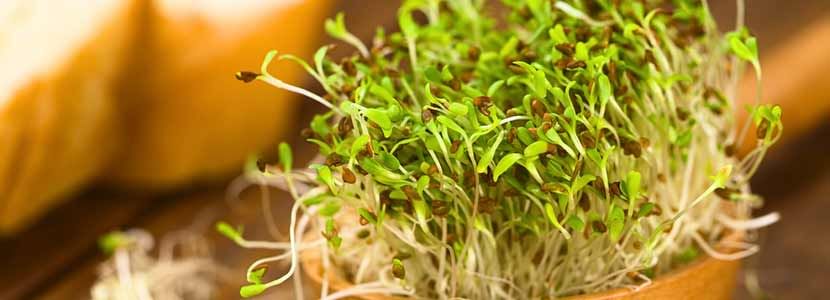Alfalfa is an herb. ... Alfalfa is used for kidney conditions, bladder and prostate conditions, and to increase urine flow. It is also ...
Alfalfa is a herb, whose leaves, sprouts and seeds are used to make various medicines. Alfalfa is used for bladder and prostate conditions, kidney conditions and to increase urine flow. It is also used for diabetes, high cholesterol, asthma, osteoarthritis, rheumatoid arthritis, upset stomach, and a bleeding disorder known as thrombocytopenic purpura. People also take alfalfa as a source of vitamins A, C, E, and K4 along with minerals like calcium, potassium, phosphorous, and iron.

Alfalfa
Alfalfa is heavily loaded with phytoestrogens and is therefore used in the treatment of menopause symptoms to combat estrogen deficiency. Three types of phytoestrogens are alfalfa-coumestrol, genistein and biocanine. Alfalfa also helps in countering vaginal dryness, night sweats, hot flashes, low estrogen and postmenopausal osteoporosis.
Nutritional Value of Alfalfa
Alfalfa works wonderfully well as a cleaner because of the presence of large amounts of chlorophyll in it. It detoxifies the body and removes carbon dioxide, thus killing anaerobic bacteria and fighting infection.
Mind.--It induces mental exhilaration of buoyancy, i.e, a general feeling of well being; clear and bright, so that all blues are dissipated. Dull, drowsy, stupid (Gels); gloomy and irritable, worse during evening.
Head.--Dull, heavy feeling in occiput, in and above the eyes, worse toward evening. Pain in left side of head. Violent headache.
Ears.--Stuffed feeling in eustachian tubes (Kali mur) at night; patulous in morning.
Stomach.--Increased thirst. Appetite impaired, but chiefly increased even to bulimia. He must eat frequently, so that he cannot wait for regular meals; hungry in forenoon (Sul). Much nibbling of food and craving for sweets.
Abdomen.--Flatulence with distention. Shifting, flatulent pain along colon several hours after meals. Frequent, loose, yellow, painful stools, with burning of flatulence. Chronic appendicitis.
Urine.--Kidneys inactive; frequent urging to urinate. Polyuria (Phos ac). Increased elimination of urea, indican and phosphates.
Sleep.--Slept better than usual, especially in early morning; it induces quiet, reposeful and refreshing sleep.
Relationship.--Compare: Avena sat; Dipodium punct; Gels; Hydr; Kali phos; Phos ac; Zinc.









COMMENTS